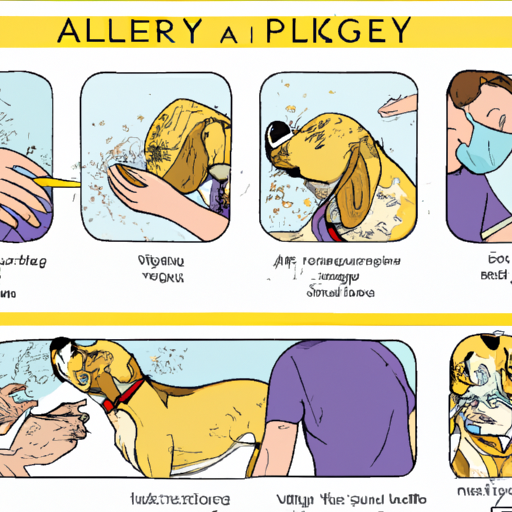“`markdown
How to Soothe Flea Allergy Dermatitis in Dogs
Understanding Flea Allergy Dermatitis
If your furry friend is incessantly scratching, he could be suffering from Flea Allergy Dermatitis (FAD), an allergic reaction to flea bites. Just as we react to allergens like pollen or dust, dogs can react to fleas. A single bite can cause a chain reaction, leading to severe itching and discomfort.
| Symptoms | Description |
|---|---|
| Itching | Constant scratching, usually severe |
| Redness | Skin may turn red due to inflammation |
| Lesions | Sores may develop from excessive scratching |
Steps to Soothe FAD in Dogs
-
Visit the Vet: Your first course of action should be visiting the vet. They can confirm if your dog is suffering from FAD and prescribe appropriate treatment.
-
Flea Control: Implement a comprehensive flea control program. This may include topical treatments, oral medications, and environmental control.
-
Soothing Baths: Baths with soothing shampoos can provide immediate relief. Look for shampoos with oatmeal or aloe vera.
-
Anti-itch Medication: Your vet may prescribe anti-itch medication to provide relief from itching and inflammation.
-
Boost Immunity: A strong immune system can help combat allergic reactions. Consider supplements with omega-3 fatty acids and antioxidants.
Long-term Management
Managing FAD is not a one-time solution but a long-term commitment. You need to stay one step ahead of the fleas. Regularly treat your dog and the environment for fleas. Monitor your dog for any signs of itching or discomfort.
Natural Remedies
While medical treatment is essential, some natural remedies can help soothe your pet’s discomfort.
- Apple Cider Vinegar: Diluted apple cider vinegar can help soothe itchy skin.
- Coconut Oil: It can moisturize the skin and speed up healing.
- Chamomile Tea: Cool chamomile tea can soothe inflamed skin.
Frequently Asked Questions
Q: Can FAD be cured?
A: FAD can be managed but not cured. Regular flea control is key.
Q: Can all dogs get FAD?
A: Yes, all dogs are susceptible, but some breeds may be more prone.
Q: How often should I treat my dog for fleas?
A: This depends on the product you’re using, but monthly treatment is common.
“`



